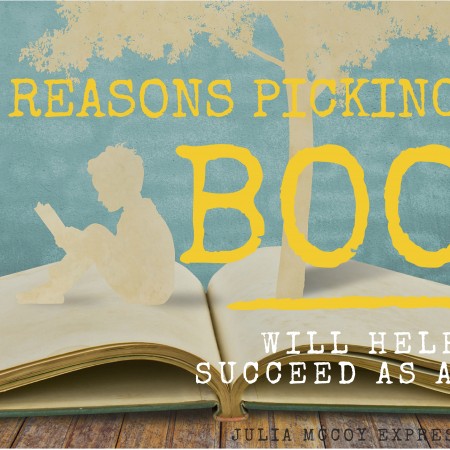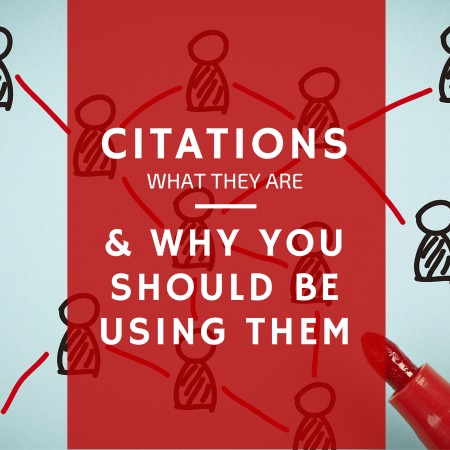9 Reasons Picking Up A Book And Reading It Today Will Help You Succeed As A Writer
There is nothing new under the sun. And guess what, I am not the first person to have said that. In fact, it was written in Biblical times by King Solomon. So if nothing was new back then, imagine how much more true that is today? No matter what you write, you are not going to come up with something that has never been said before in some way—unless you are talking about exclusive news, are Bill Gates or Steve Jobs, or What will make your content great is the unique spin you put on that old concept. When you read, you experience all of the things you want to express. And once you have experienced them, you are much better equipped to share with others. 9 Quotes from Literary Geniuses that Tell You Why Reading Makes Your Writing Better Reading makes you a better writer whether you are writing a novel or copy for your latest product. However, do not just take my word for it. I am going to prove my point through copious references to the words that have inspired me all from the mouths of the greatest writers and thinkers. You won’t be able to argue with me, because you have to admit they know what they are talking about. Which means all my reading has already paid off in writing this post alone. “Genius is one percent inspiration … “ – Thomas Edison So what if the other 99% is perspiration. Even Edison recognizes that to really be a genius, you need a little bit of inspiration. That is the purpose of books: to inspire the reader. When it comes to writing, reading a book does not magically make you a wordsmith. It does not have any actual magical powers. Writing takes a lot of hard work. If you want to be a genius writer, you are going to need to put in that 99% of perspiration that Edison suggests. However, while you are putting in that hard work, do not forget that one percent. Read a book, and be inspired. That is part of the genius formula. “Read, read, read. Read everything — trash, classics, good and bad, and see how they do it. Just like a carpenter who works as an apprentice and studies the master. Read! You’ll absorb it. Then write. If it’s good, you’ll find out. If it’s not, throw it out of the window.” – William Faulkner George Deeb wrote an article for Forbes that says mentors are one of the most valuable resources you can get if you are an entrepreneur. Well, if writing is your enterprise, then you have access to some of the greatest mentors throughout time. Take advantage of this. Tap into the resources of the masters and learn from them. Within the pages of a book, you will find all of the secrets of writing success. What other profession allows you that type of opportunity? “It is what you read when you don’t have to that determines what you will be when you can’t help it.” – Oscar Wilde Believe it or not, your reading preferences reflect on who you are. What do you enjoy reading? Sci-fi, romance, mystery? There is no right or wrong answer here, but your reading choices do say something about you. They should also say something about what you write. When you write what you like to read, you know that you are pleasing somebody. And since one of the things reading does is show you that you are not alone in how you feel or act, you know that if you please one person, you are likely to please many. So read to determine who you are, then write for that person. You will find that many other people want to read the same things as you. “A reader lives a thousand lives before he dies, said Jojen. The man who never reads lives only one.” – G.R.R. Martin One of the best things about reading is that you get to have an adventurous life even between all of your real-life adventures. As a reader, you get to discover things that non-readers never get to. Great writers do not just tell you what they want to say, they show you what they want you to feel. They put you in the shoes of their characters so that you are the one fighting the white walkers or becoming the mother of dragons. How does this translate into great writing? You have to be able to take your readers on an adventure. Whether you are writing the great American novel or you are selling sneakers online, you have to convince the reader that they are part of your story and that they want to continue on with you. In order to get to a place where your writing transports your readers, you have to have been transported yourself. So reading allows you to travel to other places and have epic adventures, which will help you bring your readers along on all of the thrilling sagas you want write about. “The more that you read, the more you will know.” – Dr. Seuss Reading is educational. When you read, even a novel, you learn. What you learn depends on the book. Maybe you learned about some theorem in a physics book. Maybe you learned about the Civil War in a history book. And maybe you learned about the strength of emotions between the pages of a Romance. Knowledge is never a bad thing. In fact, it is almost always a good thing. So, educate yourself. You cannot teach others anything unless you first learn it yourself. “Reading furnishes the mind only with materials of knowledge; it is thinking that makes what we read ours.” – John Locke If you really get into a book, you cannot help but start thinking. Great writing challenges your viewpoints and makes you question everything that you thought you knew. Once you learn to start thinking … Read more








